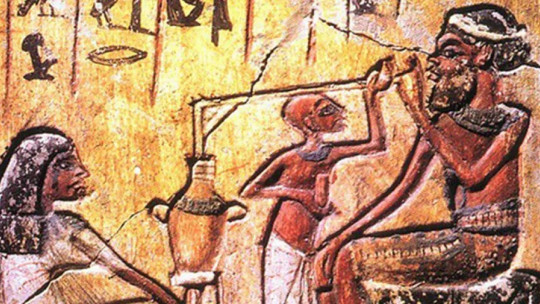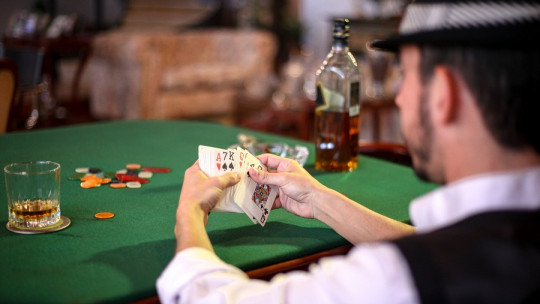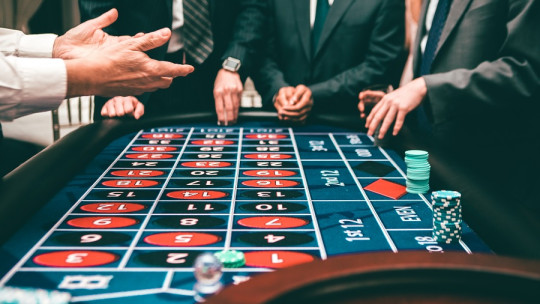
Artificial Intelligence is a great example of how humanity has evolved in recent years, so much so that it makes us dizzy to see it.
However, can we say the same about knowledge of the human mind? What can we say about the mental health treatment that worries us so much now? And what about addictions specifically?
Let’s look at this last point in detail. Let’s start by asking ourselves: Since when have addictions been in our history?
The origins of addiction
According to a study by Santa Fe College in Florida, an ancestor of Homo sapiens already consumed alcohol ten million years ago It seems that the fermented fruits that fell from the trees reached a level similar to that of wine.
There is archaeological evidence that suggests that coca leaves were chewed 8,000 years ago in Peru. And it seems that the Sumerians already consumed opium 7,000 years ago, which they called the “pleasure plant.”
It is true that substances like these were not only used for recreational purposes but also for medicinal purposes, and were even part of religious rituals. The point is that Drugs, legal or illegal, have always been present in the lives of human beings even before we existed as such.
But why are some people more likely to abuse these substances? Is it really a disease? Is it genetics? Is it a solution to a problem of emotional discomfort?
The concept of addiction is born
The definition of addiction as a physical and psychological disease given by the WHO dates back to 1956, relatively recent.
The great-granddaughter of revolutionary leader Leon Trotsky, Nora Volkow, director of the National Institute on Drug Abuse in the United States, is very clear about her position: “Addiction is not a problem of will, but rather a chronic disease that must be treated.” like any other”.
It seems that Less and less importance is given to genetic aspects in terms of addictions and more value is given to experiences, especially those that occur in childhood. Epigenetics, a discipline that has gained strength in recent years, corroborates this and so does Neuroscience, which continues to grow. Anyone with addictions can tell you that at first consumption is sought for pleasure, undoubtedly one of the most powerful forces that drive humans.
Then the intensity of that sensation decreases, until in the end the bad habit is maintained to avoid pain.
The relationship between dependency and emotions
The renowned Canadian doctor Gabor Mate, who for years ran a drug addiction center in Vancouver, goes in a different direction to the concept of illness, stating that: “Addiction is a response to emotional pain.” According to this author, the concept of chronic illness makes those who suffer from it feel bad, because let’s not forget that it is something that they have caused themselves and that they will also suffer for their entire life.
His posture is very different, perhaps more human, more empathetic. That is why he has become a world reference. Guilt is the predominant emotion of these people, followed by shame and helplessness for not being able to escape from that prison. Is it fair to blame them even more?
Gabor Mate does not hesitate to affirm that in reality the real causes of addictions are not being treated. He believes the question we should be asking is not “why addiction?” but “why the pain?” He says that all addiction has its origins in trauma, its role being relieve feelings of emptiness and give us a sense of connection with others
Scientists around the world are already pointing in the same direction. An example is psychiatrist Bessel van der Kolk, founder of the Trauma Center in Massachusetts.
In his internationally successful book The body keeps score, states that trauma is not just a fact of the past; but an imprint that was left on the mind, body and brain, with consequences so serious that they prevent us from living in the present. In his words: “Is it any surprise that people who have suffered trauma themselves cannot bear to remember it and often turn to drugs, alcohol or self-mutilation to block out something so unbearable to know?”
People affected by childhood trauma are much more numerous than we think and let us not ignore that many traumas are forgotten, repressed in the unconscious, so they seek to be relieved in the worst ways.
If society were able to advance in awareness of how important childhood is, better emotional development may be guaranteed for future generations I don’t think there is a greater act of addiction prevention than becoming aware of this reality.








